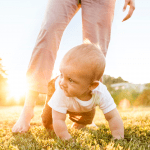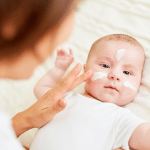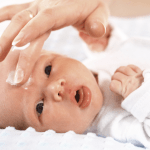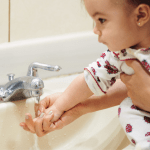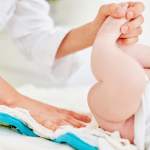Baby may have taken in a ton of chemicals since it’s been born and you probably don’t even know about it!
You may not also know that babies enter the world already having been exposed in the womb to chemicals from common everyday products. A study done on pregnant women in their second trimester, from Washington, Oregon, and California, found chemicals including bisphenol A and phthalates in their blood and urine.
Let’s dive a little deeper.
In 2012, the FDA banned BPA in baby bottles. However, up to 93% of Americans have detectable levels of BPA in their urine.
A study by Brown University researchers show that the levels of triclosan in children’s bodies increased as they got older, almost certainly from increased use of both toothpaste and hand soap.
Another study explains that mothers that reported the use of paraben-containing cosmetic products have elevated urinary paraben concentrations, and thus maternal paraben exposure may contribute to childhood obesity.
Many of these chemicals are linked to:
- The development of ADD & ADHD
- The development of eczema and other skin problems
- Neurological and cognitive decline
- A weakened immune system
- Increased development of allergies and other irritations
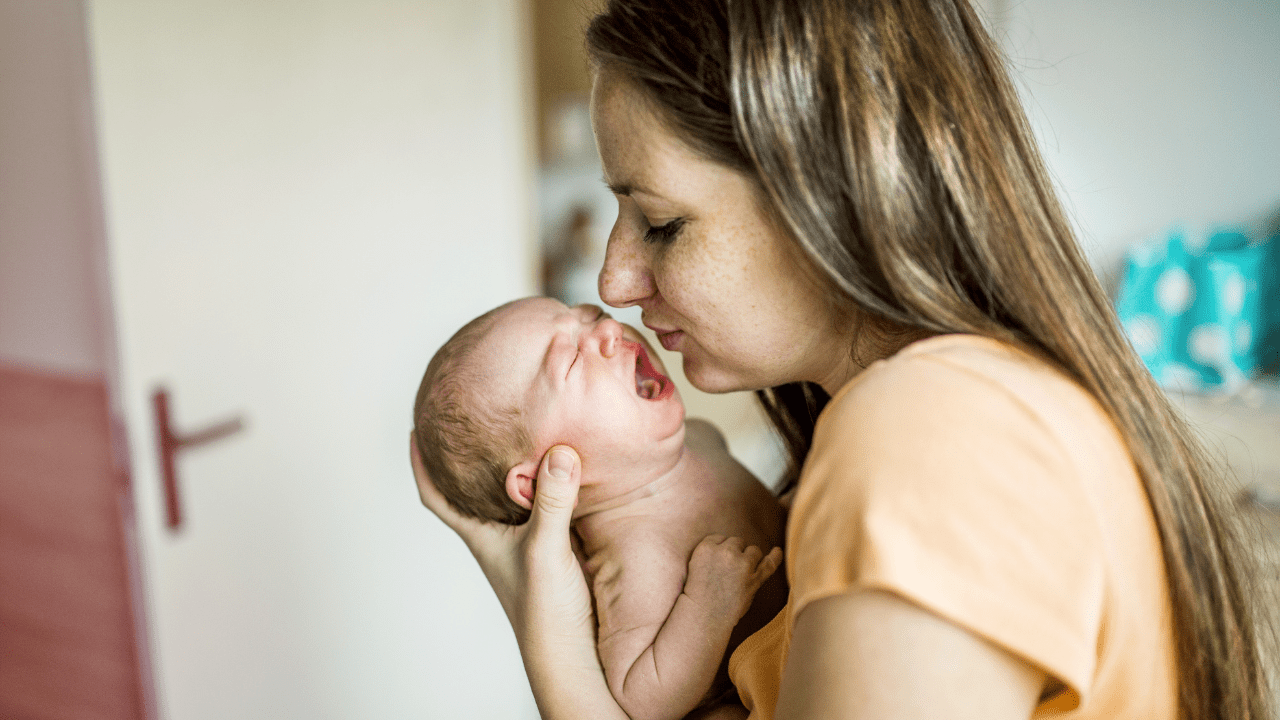
How does your baby come in contact with these chemicals?
In 3 ways: with food, with what’s on the skin, and with what’s around baby. Let’s look at this.
First, through food. For example, the chemical BPA.
BPA is used as a hardening agent to enhance the rigidity of what would otherwise be a soft plastic container or toy.
- A small amount of BPA can pass from the lining in a can if it was made from BPA into the liquid formula and can be consumed by a child.
- BPA can also pass into an infant’s formula or milk from certain types of plastic baby bottles when hot water is added directly into the bottle.
- As well, during pregnancy, babies can also be exposed to BPA from their mother. This could happen if the mother consumes BPA that has passed from a can or plastic container she eats or drinks from.
Exposure to BPA has been linked to cancer, developmental disorders, and changes to their developing nervous system such as thyroid function and brain growth.
Another way baby comes in contact with these chemicals is from what’s going on the body.
For example, Triclosan. Triclosan is a powerful chemical used as an antibacterial agent because it inhibits the growth of bacteria.
- If a product you are using, let’s say hand soap, has triclosan in it – this toxic chemical is being absorbed through your baby’s skin.
Epidermis of a baby’s skin is one third the thickness of an adult skin. Babies don’t develop a full skin barrier until they’re around 2 years old, so their skin isn’t able to maintain proper moisture levels and is less resistant to irritants.
Baby can also come in contact with these chemicals from the environment.
For example – Parabens. Parabens are a super chemical used to kill bacteria so that water-based baby topical products have a longer shelf-life.
- Parabens have been detected in water. When parabens are combined with chlorinated tap water, a number of chlorinated paraben byproducts can form.
Do you wash your baby often in the tub? Have you ever thought that your tap water would be contaminated with parabens and paraben byproducts?
All of these different ways of exposure have a negative effect on baby.
Dirt, bacteria, and chemicals can easily penetrate through the immature barrier of a baby’s skin.
Allergens and irritants enter the baby’s immune system, which is immature and still developing and are generally less capable of eliminating toxins.
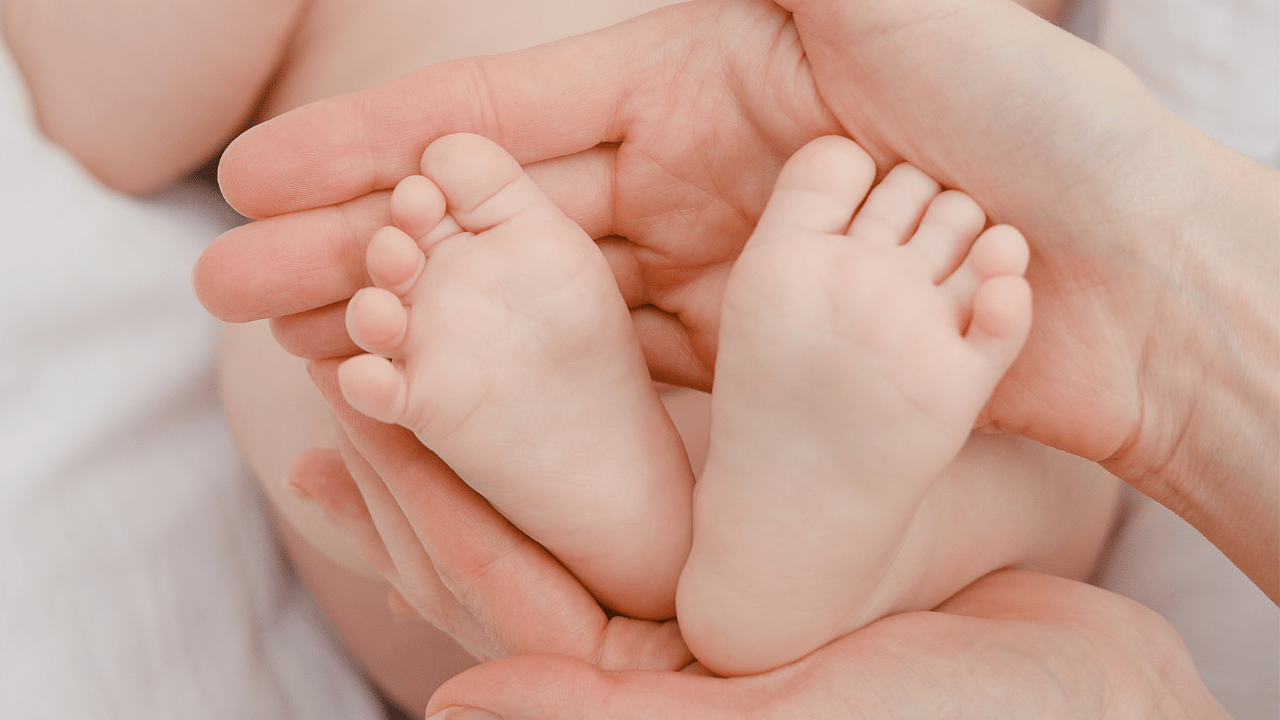
Now comes the BIG question, should you do a baby detox?
Here are 5 questions that will help you determine if your baby got in touch with harmful chemicals.
- Do the topical products you use on your baby contain water as an ingredient? When a lotion, baby balm or even baby wipe contains water, the company must also put in chemicals to keep the product from spoiling. Just think of a bottle of water or orange juice. You have to use the water within a few days of opening the bottle.
- Do you use store bought baby wipes?
- Do you put baby powder on your baby’s bottom when you change their diaper?
- Is your little one taking bubble baths?
- Are you feeding your baby liquid formula?
If you answered yes to one of these questions, you should do a baby detox.
To find out more how you can do a gentle baby detox, follow our 10 Day Baby Detox Guide and use baby-safe, water-free, and chemical-free products.

